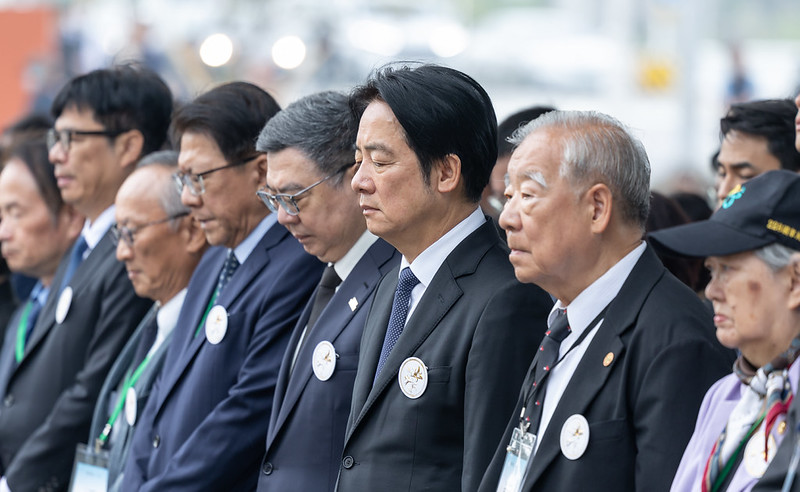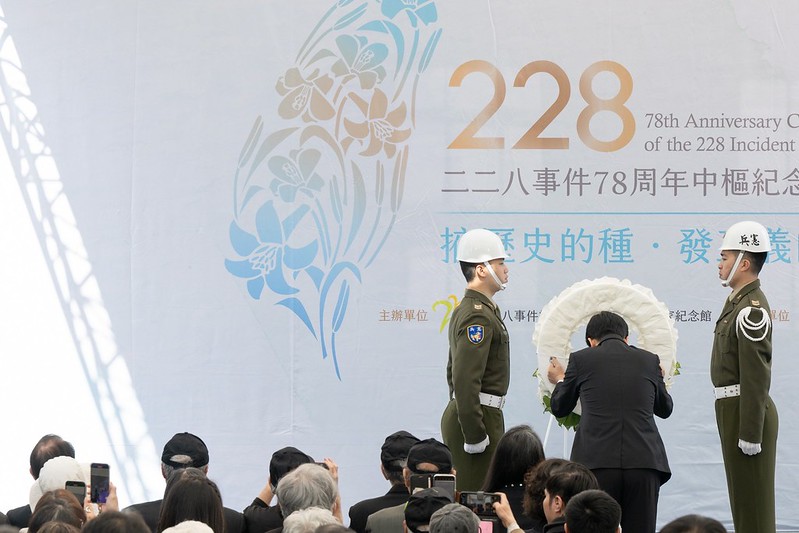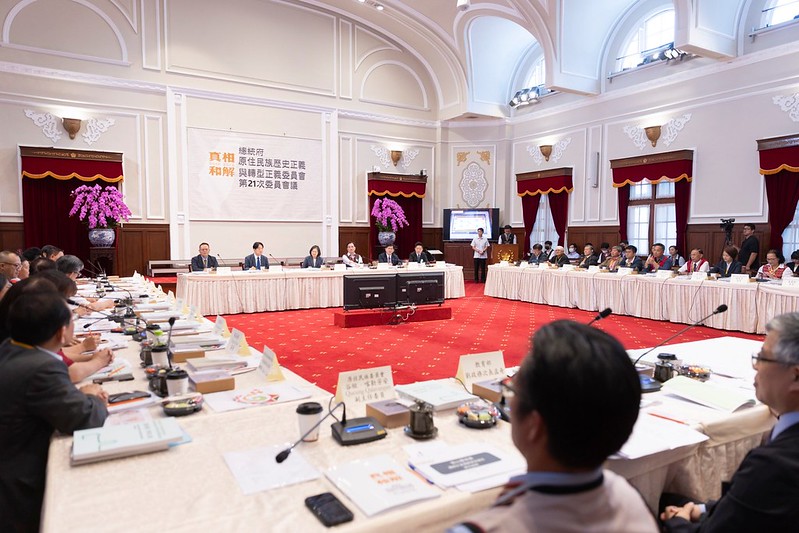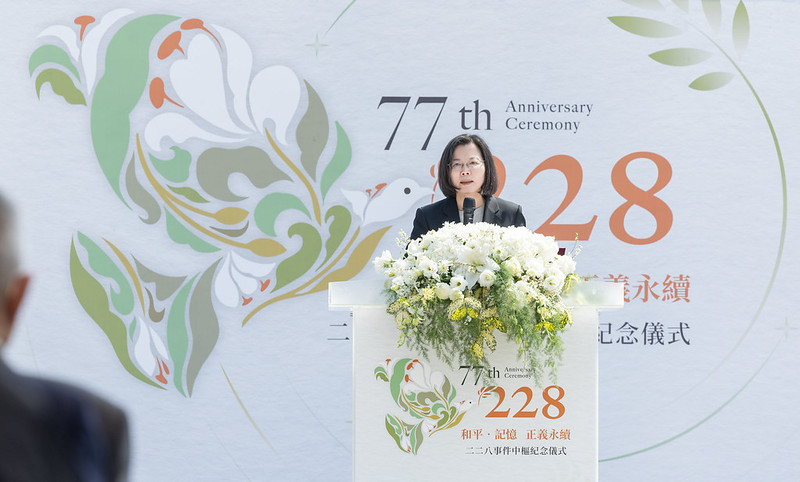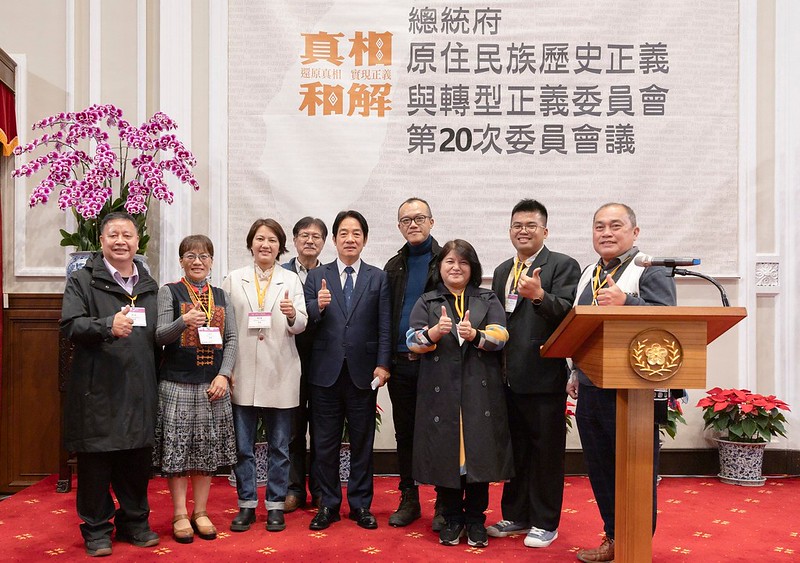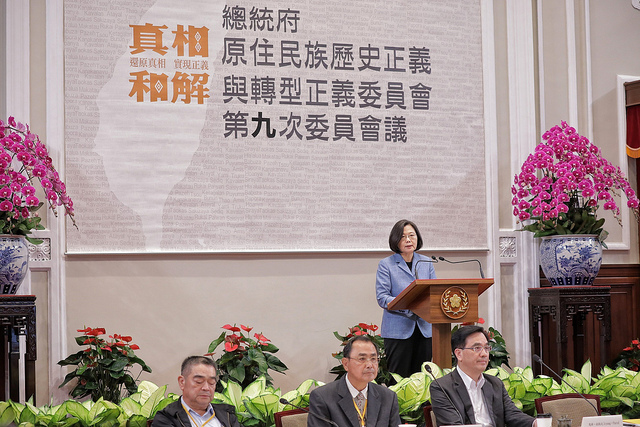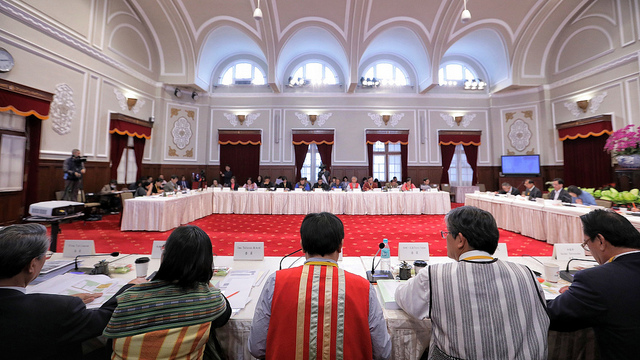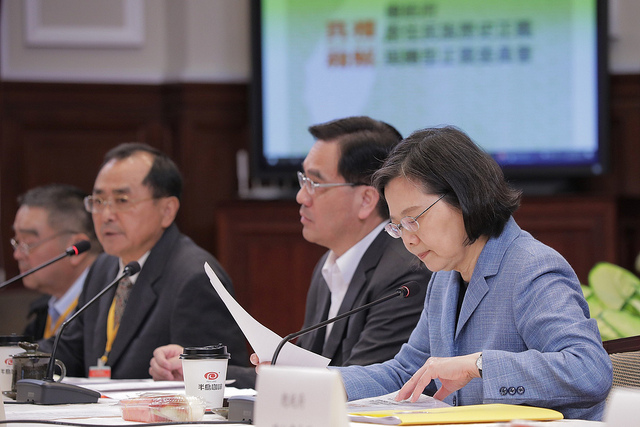News & activities
 News releases
News releases
President Tsai Ing-wen presided over the ninth meeting of the Presidential Office Indigenous Historical Justice and Transitional Justice Committee on the afternoon of March 14. She emphasized that the more complex the matter, the more patient we must be in dealing with it. The government, she said, has the determination to reflect upon past policy mistakes, and move steadily toward true reconciliation and cooperation. We will build a Taiwanese identity that all people aspire to, one that is firmly rooted in this land.
The following is a translation of President Tsai's remarks:
Today is the ninth meeting of the Presidential Office Indigenous Historical Justice and Transitional Justice Committee. As we meet once every three months, this means that the Committee has formally entered its third year of operations.
Over this period, a number of historical truths rooted in an indigenous perspective have come to light thanks to your efforts and the work of each of the five thematic subcommittees, and these truths are gradually receiving attention among the public.
Of course, indigenous peoples care most about the issue of land. I'll never forget the words of our Committee's Truku tribe representative Mr. Teyra Yudaw (帖喇‧尤道): "The land is our blood, and the mountain forests are our home." All of our indigenous cultures share a deep connection with the land.
Precisely for this reason, we are striving to clarify the truth regarding the loss of indigenous lands under different regimes, and to educate the general public about the pain and cultural impact indigenous peoples have experienced due to the loss of their lands.
I've said that to understand this period in history, we must put together three key pieces to the puzzle. I'm referring to the process by which indigenous lands were acquired by the Forestry Bureau, Taiwan Sugar Corporation, and the Veterans Affairs Council.
Over the past two years, representatives from each of these three organizations have presented reports to the Committee, and expressed a willingness to take part in our fact-finding work.
Bringing together various parties to past conflicts to engage in dialogue and restore the truth is the first step to achieving historical justice. We have since taken the second step, in which the Subcommittee on Land Matters assembled related data to help us further piece together this historical jigsaw puzzle and give expression to indigenous perspectives and stories.
Mr. Awi Mona (蔡志偉), the convener of the Subcommittee on Land Matters, will deliver a progress report on the current phase of their work today. I'm pleased to see his subcommittee's hard-won progress, and after his presentation I hope everyone will offer up any thoughts you may have.
Our purpose in clarifying the historical truth is to resolve existing problems, and look toward the future together.
During today's meeting, several committee members have made legislative suggestions regarding the issue of land reserved for indigenous peoples. We are going to hear more about everyone's thoughts on this matter during the "Discussion" section in just a bit.
However, I also want to point out that the issue of indigenous land is the single most complex and challenging one on the Committee's agenda.
Taiwan is a small and densely populated island, and the various peoples living here have different perspectives regarding land and history. That is why some citizens and government agencies still don't really understand what land means to the indigenous peoples, and when they hear that we're discussing this issue, they get nervous or defensive.
The more complex a problem, the more patient and cautious we must be in dealing with it to prevent even bigger misunderstandings or conflicts. However, I want to tell all of you, as well as our indigenous friends, that we have the determination to reflect upon past policy mistakes, and to move steadily toward true reconciliation and cooperation.
We are going to work together with our indigenous friends to uncover more truths and engage in further dialogue, so that the various ethnic groups in Taiwan can come to know and understand each other.
I believe that, by restoring the indigenous peoples' historical truths and achieving historical justice, we can find the best way to ensure indigenous land rights within the context of Taiwan's current social conditions. And we will build a Taiwanese identity that all people aspire to, one that is firmly rooted in this land.
Let's travel down this path together. Thank you.
After completing her remarks, the president was briefed on a progress report from the Subcommittee on Land Matters and exchanged views with committee members on a legislative proposal regarding the issue of land reserved for indigenous peoples.
